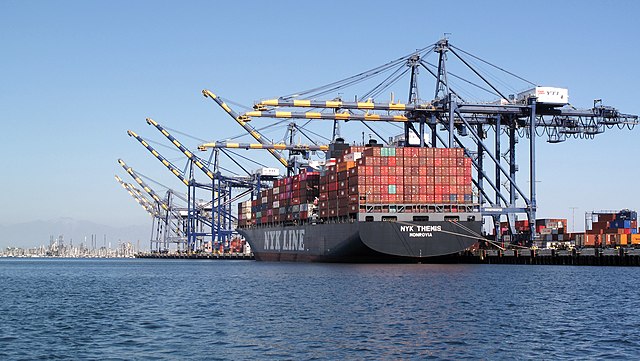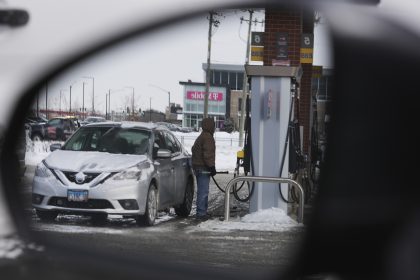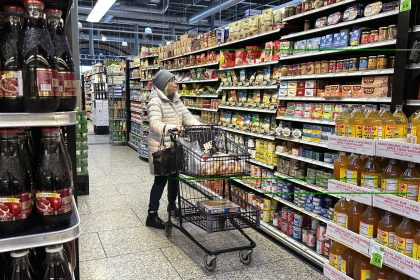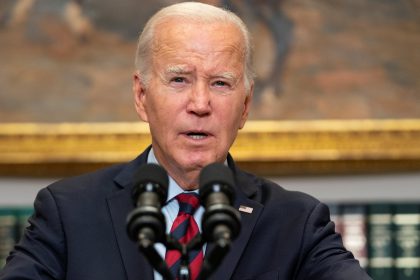Congress Tries to Intervene In Supply Chain Disruptions

WASHINGTON — While economists warned about disruptions to the U.S. supply chain, Chuck Fowke told a congressional panel Wednesday about countertops.
“If you can’t get the cabinets, you can’t put the countertops on,” Fowke said as he testified on behalf of the National Association of Home Builders.
The bigger issue is a surge in demand for products as the COVID-19 pandemic eases but a shortage of workers and distribution infrastructure to get them to consumers.
The result is slow deliveries, higher prices and what President Joe Biden says might be a disappointing Christmas when consumers look to buy gifts that have not yet reached retail shelves. Congress and the Biden administration are weighing options for ending the freight obstructions.
For homebuilders and buyers, supply chain problems mean home prices rose by double digit figures year over year in 31 of 52 cities surveyed last month by the real estate firm RE/MAX. The median was a 12.5% price increase.
Fowke said that before the pandemic, builders could expect on-time deliveries of building supplies. Now, “trying to schedule materials has become virtually impossible,” he said.
He put part of the blame on public assistance programs to extend workers’ compensation insurance benefits and other federal aid. Lawmakers approved them last year as a bridge to economic recovery while the pandemic led to massive job losses.
“If you pay a man not to work, why would he work,” Fowke asked during the House Small Business subcommittee hearing.
Democrats in Congress are pinning part of their hopes for recovery on the bipartisan infrastructure bill pending a vote in the House. The Senate approved it in August.
The bill includes $550 billion in new investment in infrastructure over five years. Some of the items include $110 billion for roadway improvements, $66 billion for railroads, $25 billion for airports and $65 billion for electric grids.
Some Republicans say it would add to the federal deficit and inflation at a time the pandemic’s economic disaster has already raised inflation to 13-year highs.
“This is tough stuff,” said Rep. Dean Phillips, D-Minn., chairman of the Subcommittee on Oversight, Investigations and Regulations. “The pandemic has upended a lot in our lives. It has exposed weaknesses.”
The weaknesses are being felt deeply by small businesses who lack the luxury of buying in bulk and warehousing the products they need months in advance. Instead, they must rely more heavily on ships, trucks, railroads and air cargo for just-in-time deliveries.
When the deliveries are delayed, the small business’ customers must do without electronics, meat, medicines and household products. Big businesses also are complaining, such as automakers who say they lack the semiconductors to manufacture new cars and trucks.
As previously reported by The Well News, the Biden administration is responding by ordering last week that the Port of Long Beach and Los Angeles, which handle 40% of the nation’s cargo, move to a 24-hour-a-day operation.
He announced the expanded hours as the port set a new record for the number of ships waiting to be unloaded. Normally an average of 17 ships wait offshore. This week that number reached 100.
Another proposal the president is considering would mobilize the National Guard to fill in for missing port workers.
RELATED | White House Action on Supply Chain Bottleneck Seen As First Step To Ending Crisis
Many of the complaints are falling on the trucking industry, which is down by 22,000 drivers since 2019, according to the U.S. Bureau of Labor Statistics. For all job categories, there are 10.4 million job openings nationwide.
Members of Congress said during the hearing Wednesday that the supply chain juggernaut is merely a symptom of a bigger problem.
“COVID helped to create the perfect storm” for supply chain interruption, Phillips said.
Rep. Beth Van Duyne, R-Texas, said, “Make no mistake, Americans are paying more for just about everything.”
Rep. Jim Hagedorn, R-Minn., said the U.S. economy has become too dependent on foreign suppliers.
“Let’s bring our jobs back from China,” he said. “When you rely on wind, solar and electric vehicles, you’re dependent on China.”
A Moody’s Analytics economic report last week said supply chain problems “will get worse before they get better.”
“Supply will likely play catch-up for some time, particularly as there are bottlenecks in every link of the supply chain,” the report said.
Tom can be reached at [email protected].























